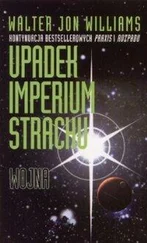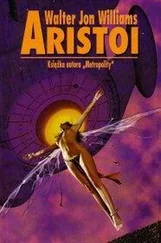Walter Williams - Logs
Здесь есть возможность читать онлайн «Walter Williams - Logs» весь текст электронной книги совершенно бесплатно (целиком полную версию без сокращений). В некоторых случаях можно слушать аудио, скачать через торрент в формате fb2 и присутствует краткое содержание. Жанр: Фантастика и фэнтези, на английском языке. Описание произведения, (предисловие) а так же отзывы посетителей доступны на портале библиотеки ЛибКат.
- Название:Logs
- Автор:
- Жанр:
- Год:неизвестен
- ISBN:нет данных
- Рейтинг книги:4 / 5. Голосов: 1
-
Избранное:Добавить в избранное
- Отзывы:
-
Ваша оценка:
- 80
- 1
- 2
- 3
- 4
- 5
Logs: краткое содержание, описание и аннотация
Предлагаем к чтению аннотацию, описание, краткое содержание или предисловие (зависит от того, что написал сам автор книги «Logs»). Если вы не нашли необходимую информацию о книге — напишите в комментариях, мы постараемся отыскать её.
Logs — читать онлайн бесплатно полную книгу (весь текст) целиком
Ниже представлен текст книги, разбитый по страницам. Система сохранения места последней прочитанной страницы, позволяет с удобством читать онлайн бесплатно книгу «Logs», без необходимости каждый раз заново искать на чём Вы остановились. Поставьте закладку, и сможете в любой момент перейти на страницу, на которой закончили чтение.
Интервал:
Закладка:
The scent of coffee wafted past his nose, and he looked up from the accounts to find that someone had placed a fresh cup of coffee by his elbow, next to a plate of newly-made sandwiches. Alikhan had made the ghostly delivery and Martinez hadn't even noticed.
He ate a sandwich and drank a cup of coffee.
Always about the money, he thought.
He opened the 77-12 that he'd viewed just that morning and looked again at the serial number of the ventilation blowers. He backtracked through the record and found that Patil had corrected the serial number from the purely fictional one that Francis had originally recorded in the log.
Every item in Martinez knew, came with its own history. Every pump, every transformer, every missile launcher, every robot, every processor, and every waste recycler came with a long and complex record that recorded the date of manufacture or assembly, the date at which it was purchased by the Fleet, the date at which it was installed, and each date at which it was subject to maintenance or replacement.
Martinez called up the history of the air blowers on Deck Eight and discovered that, according to the records, the blowers had been destroyed with the Quest, a Naxid frigate involved in the mutiny at Harzapid.
Rebel Data, he thought.
He checked the history of the turbopump that had failed at Arkhan-Dohg, and found that the turbopump had been decommissioned three years earlier, sold as scrap, and replaced by a new pump fresh from the factory.
His mouth was dry. He was suddenly aware of the silence in his office, the easy throb of his pulse, the cool taste of the air.
He knew who had killed Kosinic and Fletcher, and why.
Invitations went out in the morning, sent to all the senior petty officers. An invitation for drinks with their new captain, set for an hour before supper, was not something the customs of the service would let them decline, and decline they did not. The last affirmative reply came within minutes of the invitations being sent out.
The petty officers entered the dining room more or less in a clump: round-faced Gawbyan with his spectacular mustachos, Strode with his bowl haircut, burly Francis, thin, nervous Cho. Some of them were surprised to find the ship's secretary Marsden waiting with his datapad in his hands.
The guests sorted themselves out in order of seniority, with the highest-ranked standing near Martinez at the head of the table. Gulik was on his right, across from Master Cook Yau, with Gawbyan and Strode the next pair down, each with a grand set of mustachios; and then Zhang and Nyamugali. Near the bottom of the table was the demoted Francis.
Martinez looked at them all as they stood by their chairs. Francis seemed thoughtful and preoccupied, and was looking anywhere but at Martinez. Yau looked as if he had left his kitchens only reluctantly. Strode seemed determined, as if he had a clear but not entirely pleasant duty before him; and Gulik, who had been so nervous during inspections, was now almost cheerful.
Martinez picked up his glass and raised it. Pale green wine trembled in Captain Fletcher's leaded crystal, reflecting beads of peridot-colored light over the company.
"To the Praxis," he said.
"The Praxis," they echoed, and drank.
Martinez took a gulp of his wine and sat. The others followed suit, including Marsden, who sat by himself to the side of the room and set his datapad to record. He picked up a stylus and stood ready to correct the datapad's transcription of the conversation.
"You may as well keep the wine in circulation," Martinez said, nodding to the crystal decanters set on the table. "We'll be here for a while, and I don't want you to go dry."
There were murmurs of appreciation from those farther down the table, and hands reached for the bottles.
"The reason this meeting may take some time," Martinez said, "is because like the last meeting, this is about record-keeping."
There was a kind of collective pause from his guests, and then a resigned, collective sigh.
"You can blame it on Captain Fletcher, if you want to," Martinez said. "He ran Illustrious in a highly personal and distinctive way. He'd ask questions during inspections and he'd expect you to know the answers, but he never asked for any documentation. He never checked the 77-12s, and never had any of his officers do it."
Martinez looked at his wine glass and nudged it slightly with his thumb and forefinger, putting it in alignment with some imaginary dividing line running through the room.
"The problem with the lack of documentation, though," he said, keeping his eyes on the wine glass, "is that to a certain cast of mind, it means profit." He sensed Yau stiffen on his left, and Gulik gave a little start.
"Because," Martinez continued, picking carefully through his thoughts, "in the end Captain Fletcher only knew what you told him. If it looked all right, and what he was told was plausible, then how would he ever find out if he'd been yarned or not?
"Particularly because Fleet standards require that equipment exceed all performance criteria. Politicians have complained for centuries that it's a waste of money, but the Control Board has always required that our ships be overbuilt, and I think the Control Board's always been right.
"But what that meant," he said, "is that department heads could, with a little extra maintenance, keep our equipment going far longer than performance specs required." He looked up for the first time, and he saw Strode watching him with a kind of thoughtful surprise, as if he was recalculating every conclusion he'd ever drawn about Martinez. Francis was staring straight ahead of her, her gray hair partly concealing her face. Cho seemed angry.
Gulik was pale. Martinez could see the pulse beating in his throat. When he saw Martinez studying him, he reached for his glass and took a large gulp of the wine.
"If you keep the old equipment going," Martinez said, "and if you know where to go, you can sell the replacement gear for a lot of money. Things like blowers and coolers and pumps can bring a nice profit. Everyone likes Fleet equipment, it's so reliable and forgiving and overbuilt. And they were getting this stuff new, right out of the box."
He looked at Francis' scowling profile. "I checked the turbopump that failed at Arkhan-Dohg-using the correct serial number, not the number that Rigger Francis tried to yarn me with-and I found out the pump was supposed to have been retired three years ago. Someone had been keeping it going long after it should have been sold as scrap."
Martinez turned to Gulik. Sweat was pouring down the weaponer's face. He looked as deadly sick as he had been on the morning of Fletcher's last inspection, as the captain stalked toward him with the knife dangling at his waist.
"I also checked the serial number of the antiproton gun that failed in the same battle, and that was supposed to have been retired thirteen months ago. I hope that whoever sold the replacement wasn't selling it to someone who was intending to use it as a weapon."
"It wasn't me," Gulik croaked. He wiped sweat from his upper lip. "I don't know anything about this."
"Whoever did it," Martinez said, "didn't intend to endanger the ship. We weren't at war. Illustrious had been docked in Harzapid for years without so much as shifting its berth. The heavy equipment was going on and off the ship all the time, moving through the locked storage room where substitutions could be made without anyone being the wiser."
Martinez turned to look down the line of petty officers. "In order to work this scheme," he said, "you'd need that storage room. You'd also need the services of a first-rate machinist, with access to a complete machine shop, so that the old equipment could be rehabilitated before it was reinstalled."
Strode turned his head to look at Gawbyan. The master machinist's lips had thinned to a tight line across his fleshy face. His mustachios were brandished like tusks. One large, fat-fingered hand had closed into a fist around the stem of his wineglass.
Читать дальшеИнтервал:
Закладка:
Похожие книги на «Logs»
Представляем Вашему вниманию похожие книги на «Logs» списком для выбора. Мы отобрали схожую по названию и смыслу литературу в надежде предоставить читателям больше вариантов отыскать новые, интересные, ещё непрочитанные произведения.
Обсуждение, отзывы о книге «Logs» и просто собственные мнения читателей. Оставьте ваши комментарии, напишите, что Вы думаете о произведении, его смысле или главных героях. Укажите что конкретно понравилось, а что нет, и почему Вы так считаете.










